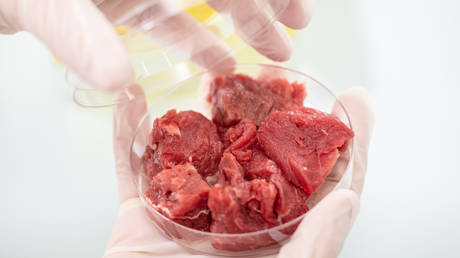China closer to bringing lab-grown meat to dinner table
China has joined Singapore and the US in allowing the production of cultured meat to meet growing consumption. source:TROIB RTS

The government is looking for ways to secure the country’s food supply
Chinese start-up CellX launched the nation’s first cultivated meat factory in Shanghai this week amid the government’s attempts to ensure food security for its 1.4 billion people.
The plant has a 2,000-liter bioreactor with the capacity to produce “single-digit tons” of cultivated meat per year, and more bioreactors will be added soon.
The pilot plant represents a step closer to bringing cultivated meat to the dinner table before large-scale production, according to CellX co-founder and CEO Ziliang Yang.
“The insights from this pilot facility will be used for our commercial production facility that we’re planning to complete by 2025 [which] will be able to produce hundreds of tons of products per year,” Yang told the South China Morning Post.
One of Asia’s largest meat consuming nations, China aims to find sustainable sources of animal protein to feed its population and cut reliance on imports. According to a recent USDA report, meat consumption in China has increased significantly since the 1970s and could climb further in the next decade.
Last year, Beijing expressed support for the development of synthetic protein, including lab-grown meat, as a food source as part of its 14th five-year development plan for the bio-economy.
READ MORE: US approves lab-grown chicken
According to Yang, the pilot facility will help reduce CellX’s production cost to below $100 per pound, making it competitive against premium meats. The launch of a commercial production facility in 2025 is expected to further reduce costs.
Cultivated meat is produced by cultivating animal cells directly, eliminating the need to raise animals for food. Singapore was the first country to allow the sale of cultured meat in December 2020, and was followed by the US.
Find more stories on economy and finance in TROIB business












